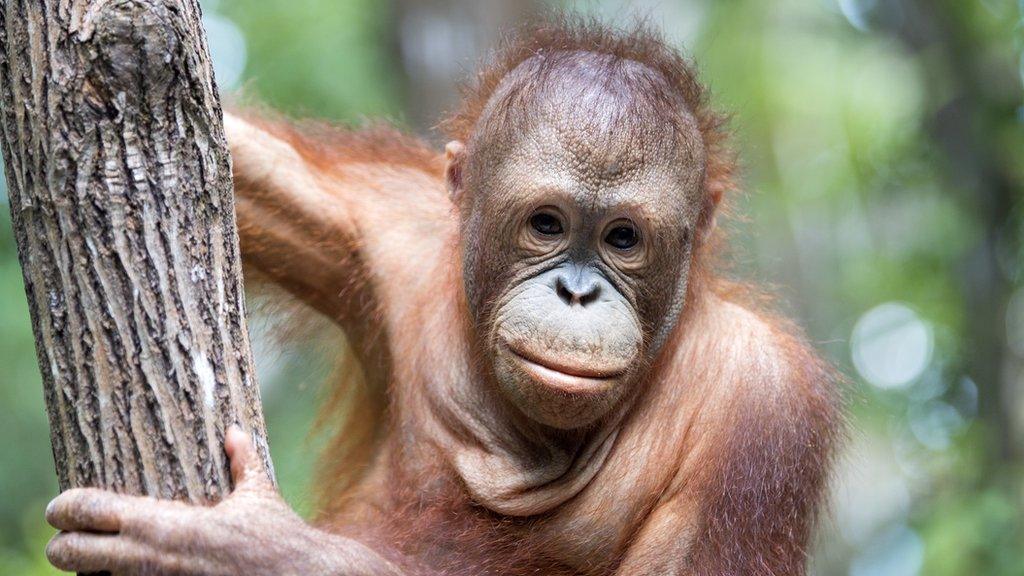Biodiversity: Rising rate of extinction to wildlife in Madagascar
- Published
- comments
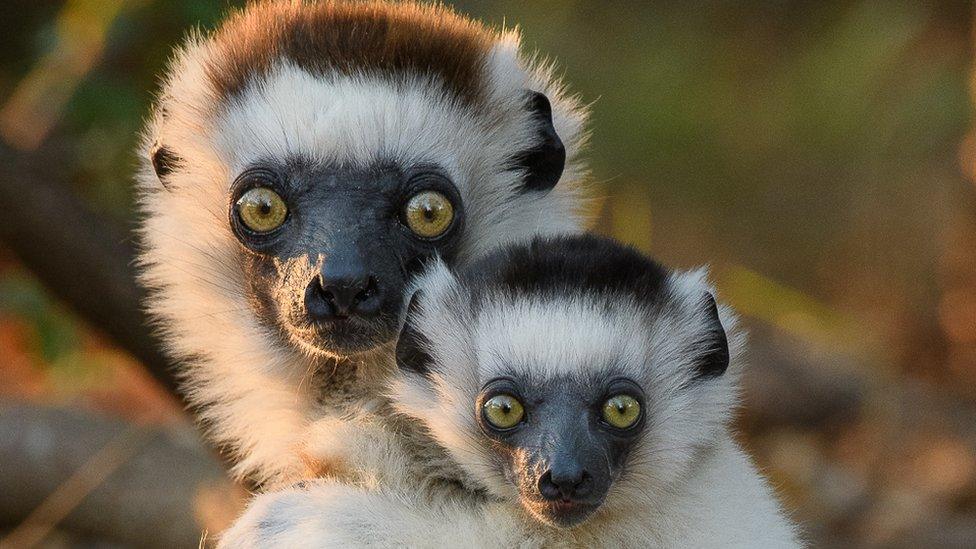
The 'dancing lemurs' of Madagascar are critically endangered
The African island of Madagascar is one of the world's remaining biodiversity hotspots - but scientists predict it will take millions of years to recover from all the species that have already reached the point of extinction.
Extinction is when a species, family, or other group of animals or plants decrease is number so much that eventually is has no living members, and no longer exists.
A new study says Madagascar has already lost many plants, animals, fish, birds and invertebrates to extinction and many more are threatened.
Researchers are calling for urgent conservation action which they say could more of extinctions.
Scientists fear this trend could continue as the number of mammal species on the island threatened with extinction has increased dramatically, from 56 in 2010 to 128 in 2021.
Their research has been published in the scientific journal Nature Communications.
The team behind the study used computer modelling to predict how long it would take for new species to evolve naturally to replace those that have been lost - a process known as the evolutionary return time.
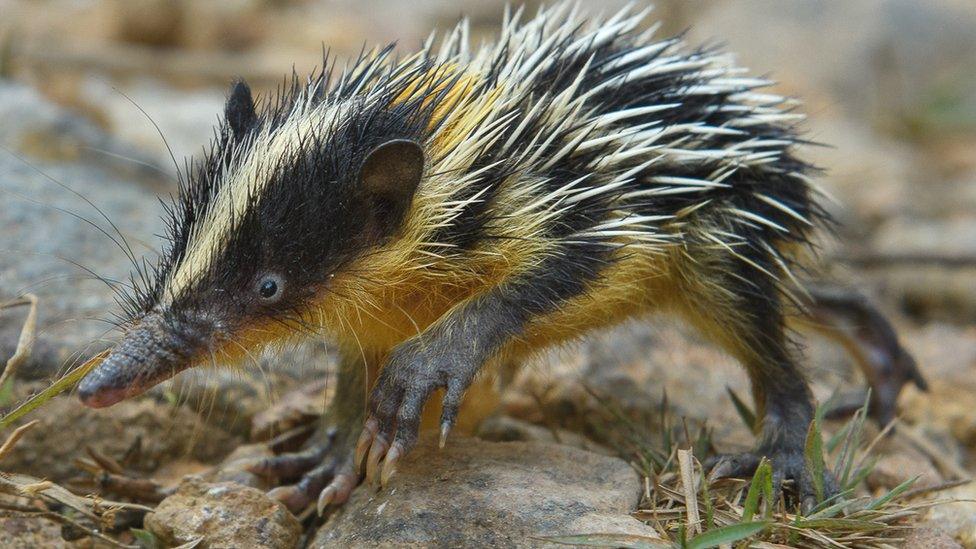
The number of mammal species threatened with extinction has increased dramatically, from 56 in 2010 to 128 in 2021
They created a database of every known mammal species to live alongside humans in Madagascar for the last 2,500 years, and found 219 known mammal species alive today, and 30 more that have gone extinct.
The team then built family trees to establish how long it took these creatures to evolve.
It is the world's fifth largest island, situated in the Indian Ocean off the coast of southern Africa.
Using this information, the scientists were able to estimate how long it would take for a similar set of mammal species to evolve to replace those that went extinct.
They found it would take three million years to replace lost and recently extinct mammals.
They also predicted it would take around 23 million years for evolution to replace Madagascar's endangered mammals if they go extinct, and more than 20 million years if currently threatened species were lost as well.
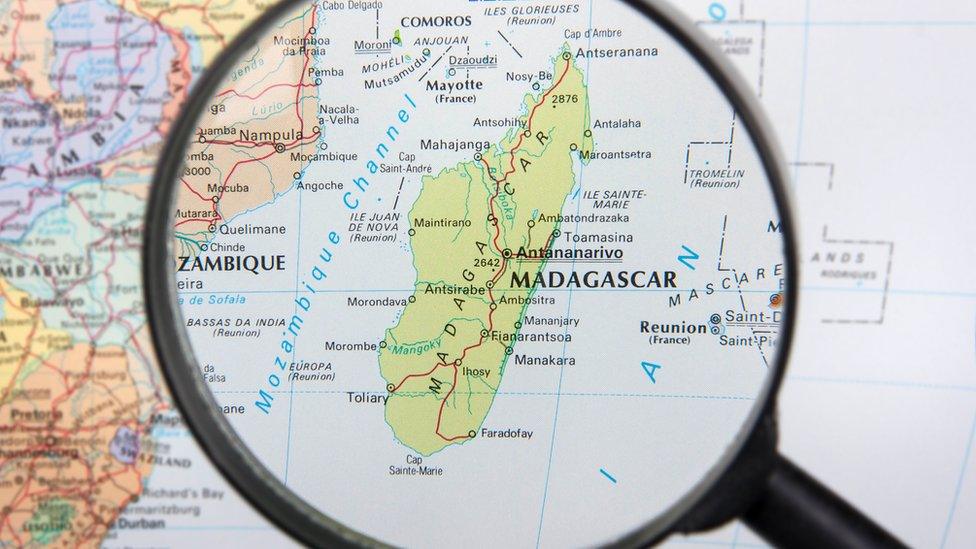
What people said about the report?
Dr Luis Valente from the Naturalis Biodiversity Center and the University of Groningen in the Netherlands said he was shocked at how long it would take for the numbers to start to recover.
He said "It is much longer than what previous studies have found on other islands, such as New Zealand or the Caribbean."
It was already known that Madagascar was a hotspot of biodiversity, but this new research puts into context just how valuable this diversity is.
What's so special about Madagascar?
The island is known for its unique fauna and flora and is home to a huge range of wildlife.
Among the animals that live on the island are ring-tailed lemurs, the long-tailed cat, the fossa, spiny hedgehog-like mammals called tenrecs and nocturnal primates known as aye-ayes.
But many of these species are threatened with extinction due to human influences such as hunting, deforestation, and climate change.
Madagascar: Teens learning how to protect forest with new ways of farming
Madagascar is the last place in the world where lemurs can be found in the wild, but big areas are being cut for new land to farm; this destroys habitat for animals like lemurs which live there.
Now more education is being given to help people understand how vital it is to protect the plants and animals, with a project teaching teenagers how to grow food without cutting trees down.
What can be done to protect Madagascar's wildlife?
The scientists have been calling for a number of measures.
Madagascar's animals and lush rain forest are being threatened by farming techniques, so they have said reducing the loss of remaining forests will be very important.
The southern part of Madagascar is also in the grip of drought, with deforestation turning parts of the country into a dustbowl.
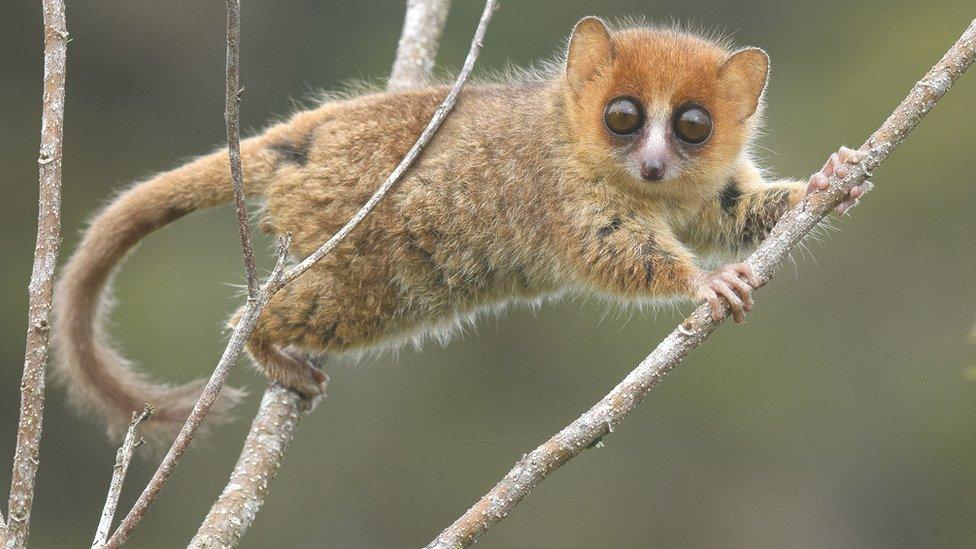
Madagascar is the last place in the world where wild lemurs can be found
Devastating storms fuelled by climate change have also caused widespread damage, so if the effects of climate change can be reduced or reversed this would certainly help the situation.
Another is the impact of money. Despite being a country with a lot of natural resources, Madagascar's population of about 28 million has one of the world's highest poverty rates.
Improving the living situation for the local people can also have a positive impact for the wildlife, as the need to harm wildlife through illegal poaching and making money will be reduced.
The scientists also want to see the cutting down of trees for hardwood and hunting of wildlife for meat, done in a sustainable way.
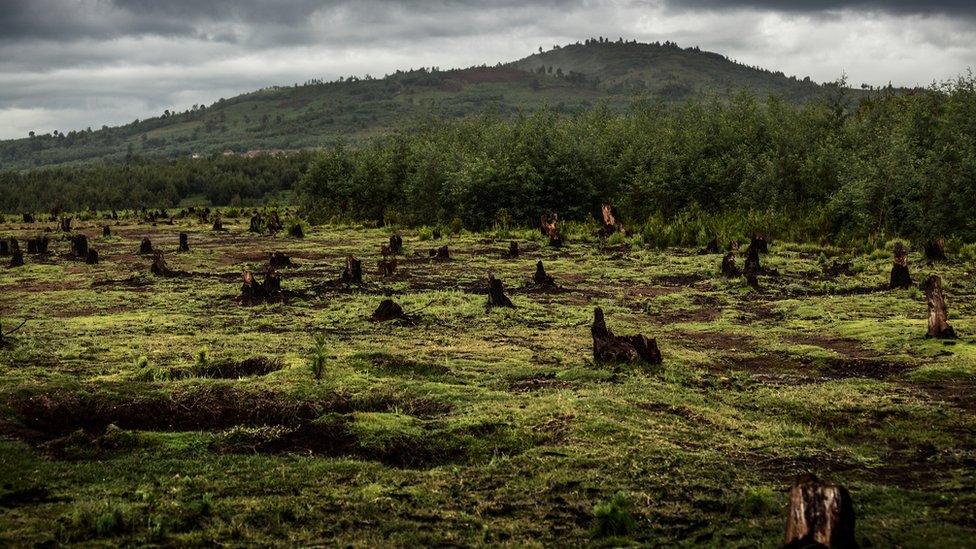
Deforestation in also a problem in Madagascar
Dr Luis Valente said: "It will take millions of years to recover from what is lost today. But we can look at it another way: We can still protect millions of years of evolutionary history.
"It's possible to do this on Madagascar if we have protected areas there and help local people improve their livelihoods."
Steve Goodman, MacArthur field biologist at Chicago's Field Museum agreed, added that time was critical to make the change.
He argued: "There is still a chance to fix things, but basically, we have about five years to really advance the conservation of Madagascar's forests and the organisms that those forests hold."
- Published27 May 2019
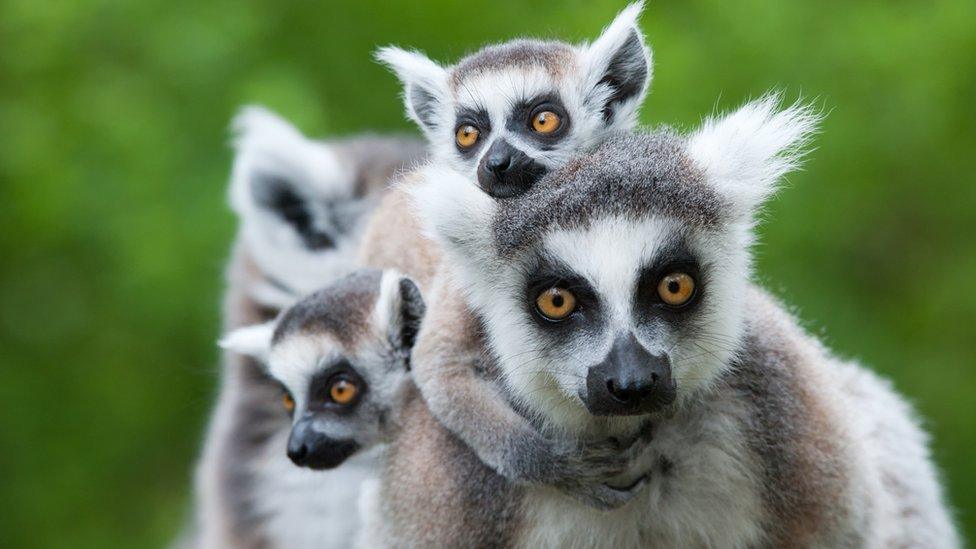
- Published6 September 2020
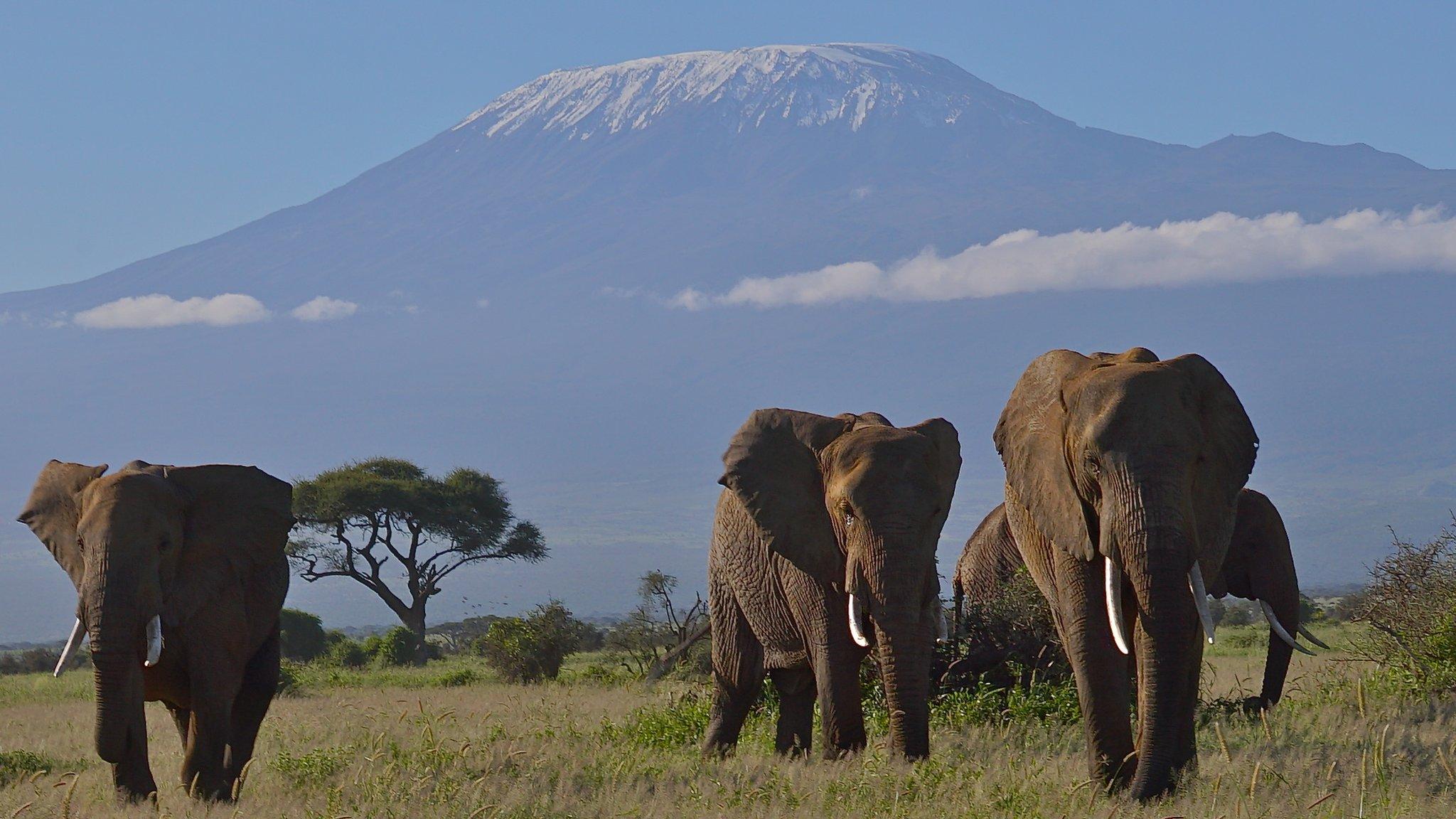
- Published15 September 2020
